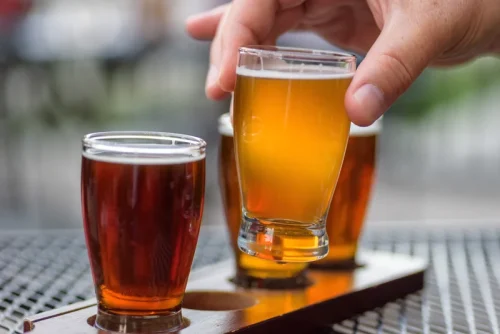
Sparkling water offers the same hydration benefits as still water but with a fizzy twist. It’s a great alternative for those who prefer a bit of carbonation without added sugars or calories. Mint water is not only refreshing, but also aids digestion and helps in maintaining fresh breath. Adding fruits, herbs or vegetables to your water can enhance the flavor and provide additional nutrients, like vitamins and antioxidants, making hydration more enjoyable. This article is based on scientific evidence, written by experts and fact checked by our trained editorial staff. Note that the numbers in parentheses (1, 2, etc.) are clickable links to medically peer-reviewed studies.
Lowering your health risks from alcohol

He doesn’t think it’s worth the potential risks of consuming the raw ingredient. Kim Haasarud, a professional bartender and beverage consultant, told BI that simple margaritas with fresh ingredients https://ecosoberhouse.com/ can’t be beaten. Business Insider spoke with bartenders, beverage directors, and hospitality workers to find out which cocktails you should (and shouldn’t) order at restaurants and bars.
Editor in Chief, Harvard Health Letter
Vodka, rum, tequila, and gin shouldn’t go together, but somehow along with triple sec, lemon juice, and cola, the flavors meld to create a harmonious whole that’s surprisingly easy to drink. Too easy, one might say — Long Island iced teas are notoriously boozy, and thus should always be considered with caution. “I’d stay away from cocktails built upon ingredients that oxidize quickly, like sherry and vermouth,” he said. “It’s sort of a ‘don’t order seafood at a restaurant that doesn’t sell a lot of seafood’ bit of advice.”
Special Health Reports
Taking stock of your triggers can help you better prepare for the times when you tend to overdo it. Past studies may have masked the health benefits of not drinking at all. If you keep a lot of alcohol around, you may be tempted to go over the drinking limit you set for yourself when you’re at home. Talk with your doctor right away if you have signs of alcohol use disorder — even if you don’t think they’re causing any problems in your life.
She has no problem just having a glass of wine with dinner or a couple of drinks with friends. Her blood pressure was going up; her weight was creeping up. There are also support groups such as Moderation Management, which aims to help drinkers who are trying to cut back. In the Sinclair method, the participant takes Revia or Vivitrol one hour before drinking.
How well do you score on brain health?

If you’re at a dive bar, a sports bar, or a brewpub, you’ll probably want to ask the bartender to double-check the freshness before you set your heart on one of these creamy cocktails. There are no hard and fast rules when it comes to ordering a drink when you’re out at a bar, nor should there be. However, avoiding ordering drinks that may be more how to drink moderately trouble than they’re worth can make your time out less enjoyable. But more and more studies have increasingly pointed to a different problem, suggesting a link between higher levels of fluoride and brain development. Researchers wondered about the impact on developing fetuses and very young children who might ingest water with baby formula.
A note of caution from newer studies
It took me a moment to comprehend that what I once thought was so beautiful turned ugly. One night (at around 22-years-old), while drinking in a local bar at Florida State University, I saw the most beautiful girl walk in. I remember thinking, “If only I could be that beautiful. If only I could be that girl.” Experts refer to this benefit as a lower risk of “all-cause mortality.” Or—more simply—death from anything. Lisa Valente is a registered dietitian and former senior digital nutrition editor for EatingWell.
- The CDC also defines binge drinking, which can lead to an array of health issues.
- But drinking in moderation can actually lead to a healthier and more enjoyable college experience.
- Instead of drinking beer on a Friday night, “I’d drink seltzer water … and dance in the playroom with my son,” she says.
- A JAMA review of 107 studies published from 1980 to 2021 found that occasional or low-volume drinkers did not have a lower risk of all-cause mortality than lifetime nondrinkers did.
More evidence moderate drinking is good for your heart. Also: a reason.

